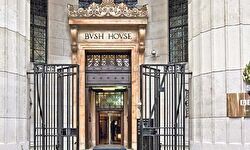
Just about anyone in Britain can tell you where they were and what they were doing on the morning of August 31 1997, when the world learnt that Diana, Princess of Wales, had been killed in a car crash in Paris. The same is almost certainly true of millions more worldwide.
The British people still haven’t got over the event. It is not so much that they cannot adjust to the death of a hugely pretty princess who seemed to embody the little girl’s dream gone bad, as what her death represented. It was the moment the royal family entered the modern world.
Diana had been the last of the royal consorts to be chosen on the antediluvian prejudices of a household clearly baffled by the world beyond the palace gates. She was one of the last victims of a cast of mind which thought the main purpose of educating girls was to teach them how to wear white gloves and open village fêtes.
I once chaired a quiz featuring the question “Diana, Princess of Wales’s only formal qualification from her school days was a certificate for the best kept what?” One table answered “virginity”. (The correct answer was hamster or gerbil or something.) But the fact is that she did not achieve a single O-level, despite sitting the exams twice.
Then it was off to Swiss finishing school and cookery classes, followed by a job as a playgroup school assistant. That was how the toffs treated girls. Kate Middleton, the air hostess’s daughter who married Diana’s eldest son, has at least earned a degree (in art history) from St Andrews university, by the sweat of her own brow in open competition.
When Diana’s marriage to Prince Charles went bad and they divorced in 1996, they merely did what thousands of other people did that year. (Since then, the divorce rate has tumbled: largely, it is thought, because of public acceptance of cohabitation.)
Diana and Charles had been required to spend the nights before their wedding in separate buildings. Today, no one — not even the Daily Express — bats an eyelid at stories of Prince Harry’s alleged girlfriend spending nights with him in Kensington Palace.
It is tragic, of course, that it took a grotesque accident to force the royal household to adapt to social changes others had embraced years before. And for a few days, the House of Windsor looked dithery and uncertain. The audible silence allowed imbecilic “experts” to demand the royal ensign be flown at half-mast over Buckingham Palace.
It cannot be, for the simple reason that the country is never without a monarch — hence: “The king is dead. Long Live the King.”
Instead, the monarchy emerged sadder and wiser from Diana’s death. It remains the grandest European royal house, and it will be years — if it ever happens at all — before it becomes one of the “bicycling monarchies”. Change comes slowly to the House of Windsor. But that is perhaps one of the secrets of its longevity.
In the years since Diana’s death, the Queen’s standing has been restored, and while no one claims that Prince Charles is a popular figure, the public have warmed to his new wife. And all monarchists understand the principle that succession is by accident of birth, which means you have to accept that some members of this uniquely privileged family will be popular, some unpopular, some wise, some foolish, some beautiful and some plain. Like the rest of us.
The biggest change seems to have been to the country of which Diana might, one day, have been queen. Something akin to hysteria swept Britain in the days after her death, leaving many observers baffled.
But outbursts of popular emotion have never been far below the surface, as accounts of Nelson’s homecoming, Kitchener’s death and Churchill’s funeral all attest. The British are still a dutiful and reserved people. But the stiff upper lip was just a stoical, Victorian fashion, and Diana’s obsequies marked an end to it.
In recent television documentaries to mark the anniversary of Diana’s death, her sons have spoken frankly about their grief, and if they can do so, why not anyone?
Of course Britain is not the country it was in 1997. Diana’s end came as a terrible shock for everyone. It took the death of a privileged young woman to free those who might one day have been her people.



